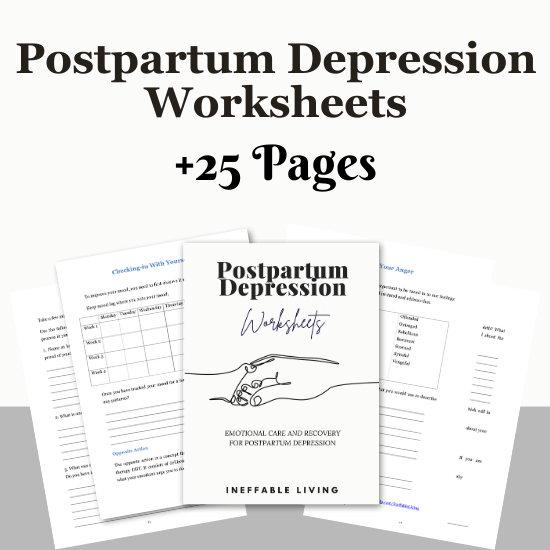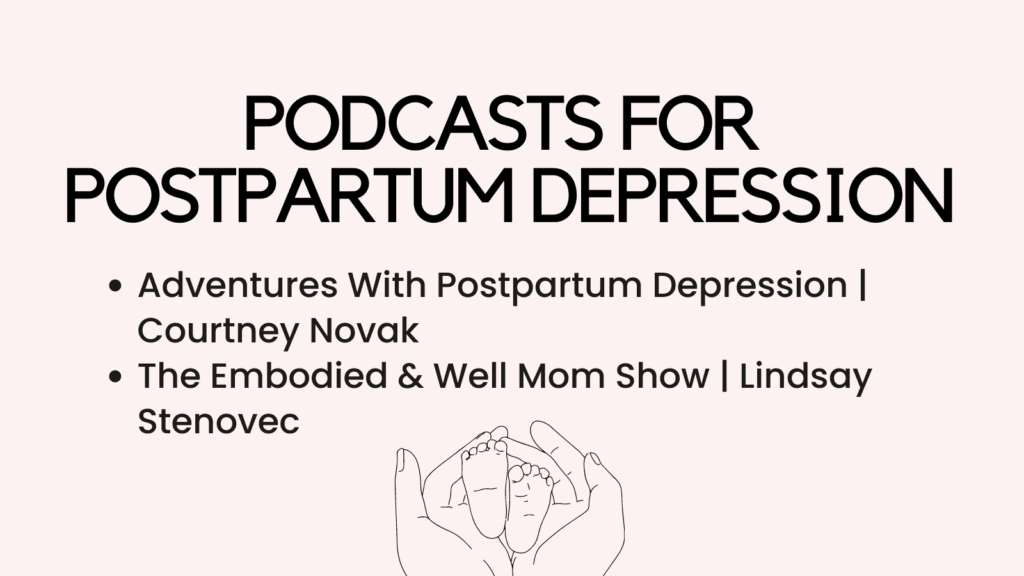Postpartum mental health challenges are common, but they’re often hard to talk about — even with the person closest to you. You may feel overwhelmed, ashamed, guilty, or afraid of being misunderstood. But opening up to your partner is an essential step toward support, healing, and feeling less alone in this new chapter. Here’s how to approach the conversation with clarity and care — for both of you.
Why It Feels Hard to Talk About Postpartum Struggles
You Don’t Want to Seem Ungrateful
You may worry that naming your pain will make it sound like you’re not happy to be a parent. But gratitude and struggle can exist together.
You’re Afraid They Won’t Understand
If your partner hasn’t gone through it, you might feel like they won’t “get it” — or worse, dismiss what you’re going through.
You’re Struggling With Your Own Identity
You might not even have the words yet to describe what you’re feeling. When your emotional world is shifting daily, communication feels overwhelming.
Signs You Might Be Struggling Postpartum
- Persistent sadness, guilt, or hopelessness
- Feeling disconnected from your baby or yourself
- Rage, anxiety, or emotional numbness
- Difficulty sleeping, even when the baby sleeps
- Withdrawing from your partner emotionally or physically
- Feeling like you’re just “going through the motions”
These are not personality flaws — they’re mental health signals. And you don’t have to carry them alone.
Related: Postpartum Anxiety Quiz (+ 5 Tips On Overcoming PPA)
How to Talk to Your Partner About Your Postpartum Mental Health?
1. Start With Self-Awareness
Before the conversation, take some time to identify what you’re feeling. Are you experiencing sadness, anxiety, rage, numbness, or panic? Is it happening at specific times (like bedtime or feeding), or does it feel constant? The more specific you can be about your symptoms, the easier it will be for your partner to understand what’s going on.
2. Choose a Calm Moment to Talk
Wait for a quiet time when neither of you is overly tired, distracted, or emotionally charged — even if it’s just 10 minutes during a calm part of the day. Avoid bringing it up during an argument, in the middle of a breakdown, or right before bed. A calm setting makes space for connection, not defense.
3. Be Honest, Even If You Feel Vulnerable
You don’t need to have perfect words. Start with something simple like:
“I’ve been feeling really off lately and I think I need to talk about it.”
“I’m not okay, and I don’t fully understand it yet — but I need you to know.”
You don’t have to explain everything right away. Just naming that something is wrong is a powerful beginning.
4. Use “I” Statements to Reduce Blame
To avoid triggering defensiveness, focus on your own experience rather than what your partner is or isn’t doing.
For example:
“I’ve been feeling really anxious and it’s making it hard for me to rest.”
Instead of:
“You never help and it’s making me fall apart.”
This keeps the focus on your mental health, not the relationship dynamic (though that can be addressed later).
5. Express What You Need — Not Just What You Feel
Your partner may want to help but not know how. Try to be clear about what would actually make a difference. That might include:
- Taking over certain baby duties for part of the day
- Helping with chores or errands
- Supporting you in finding a therapist
- Simply listening without trying to fix it
Being specific turns your pain into actionable support.
6. Normalize That This Isn’t About Failing
Let your partner know this isn’t about blaming yourself or anyone else — it’s about getting through something real and difficult. You can say:
“This isn’t about being a bad mom or not loving the baby. I’m just going through something hard emotionally and I need help getting through it.”
This helps reduce stigma and invites empathy instead of confusion.
7. Don’t Expect Immediate Understanding
Your partner may not fully grasp postpartum depression, anxiety, or rage right away — especially if they haven’t experienced it themselves. They might ask awkward questions, get overwhelmed, or even downplay it at first. Give them time to process. Offer resources or articles if needed, but focus on opening the door first.
8. Involve Them in the Healing Process
Once the conversation starts, keep them involved. Let them know when things get better or worse. Invite them to join you at therapy if you’re open to it. Healing is easier when you’re not walking through it alone.
9. Revisit the Conversation as Needed
Postpartum mental health can change over time — sometimes slowly, sometimes suddenly. This isn’t a one-time talk. Continue checking in, adjusting expectations, and sharing updates. Let your partner be a part of the journey, not just a one-time witness.
Related: Postpartum Depression Resources (Information, Podcasts, Books)

Conclusion
You don’t have to hold your pain in silence — especially not while navigating the intense transition into parenthood. Talking to your partner won’t fix everything overnight, but it can help rebuild connection, reduce isolation, and open the path toward healing. Your mental health matters — not just for you, but for your entire family. And asking for help is not weakness — it’s wisdom.



